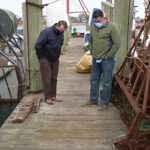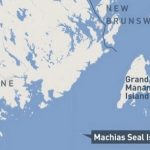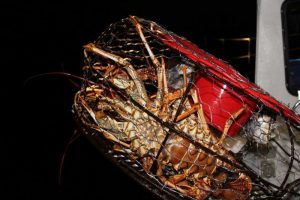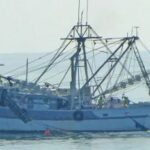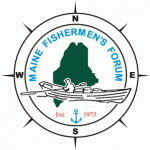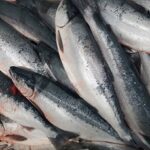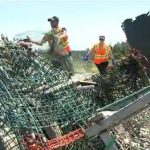Daily Archives: July 2, 2016
Listen to the Bristol Bay Fisheries Report July 1, 2016
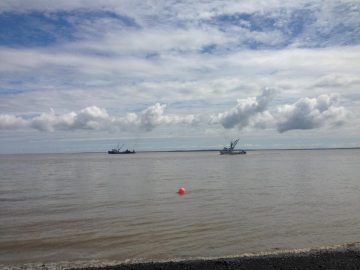 Tonight a Ugashik set-netter tells us he’ll fish despite some stormy weather this weekend, Area Manager Paul Salomone updates on Egegik and Ugashik numbers, and we check-in on a Kuskokwim dilemma. The total run to Bristol Bay hit 4.5 million on Thursday – 40 million or so left to go. Fish and Game has a countdown to the two billionth salmon caught in Bristol Bay, and we’re closing in. Thursday’s catch of 475,000 brought the season total to about 3 million, and some strong Naknek-Kvichak escapements let to an opener there sooner than planned. While those eastside fisherman were busy with their nets, we heard about the nets in the Egegik and Ugashik districts, and the wind blowing at Ugashik Bay. Plus, a check on the Kuskokwim, where no buyer means no commercial fishing, despite a healthy enough run. To listen, click here 16:15
Tonight a Ugashik set-netter tells us he’ll fish despite some stormy weather this weekend, Area Manager Paul Salomone updates on Egegik and Ugashik numbers, and we check-in on a Kuskokwim dilemma. The total run to Bristol Bay hit 4.5 million on Thursday – 40 million or so left to go. Fish and Game has a countdown to the two billionth salmon caught in Bristol Bay, and we’re closing in. Thursday’s catch of 475,000 brought the season total to about 3 million, and some strong Naknek-Kvichak escapements let to an opener there sooner than planned. While those eastside fisherman were busy with their nets, we heard about the nets in the Egegik and Ugashik districts, and the wind blowing at Ugashik Bay. Plus, a check on the Kuskokwim, where no buyer means no commercial fishing, despite a healthy enough run. To listen, click here 16:15
Fisherman upbeat after EU vote opens door for leaving institution
 Leave-supporting fishermen have spoken of their delight and positivity after Britons voted to leave the EU. Gary Smith is skipper of the whitefish trawler Devotion. From a fishing point of view he said it was the right decision and is positive about the industry. “The common fisheries policy has been terrible for fishing, forcing British men to dump fish while huge foreign vessels plunder the stocks,” he said. He admitted UK fishermen were not entirely blameless, having largely taken the law into their own hands with black landings (the landing of over quota fish) in the 1990s and early 2000s, as well as the mass dumping of good fish back to the sea. “But with a governing body so far removed from reality I feel we had no option, these immoral and illegal acts were done totally unwillingly for survival. “I believe now more than ever before we need to unite as one voice, everyone agrees that fisheries science is at best a two-year-late guess. That is simply not good enough. Read the rest here 15:28
Leave-supporting fishermen have spoken of their delight and positivity after Britons voted to leave the EU. Gary Smith is skipper of the whitefish trawler Devotion. From a fishing point of view he said it was the right decision and is positive about the industry. “The common fisheries policy has been terrible for fishing, forcing British men to dump fish while huge foreign vessels plunder the stocks,” he said. He admitted UK fishermen were not entirely blameless, having largely taken the law into their own hands with black landings (the landing of over quota fish) in the 1990s and early 2000s, as well as the mass dumping of good fish back to the sea. “But with a governing body so far removed from reality I feel we had no option, these immoral and illegal acts were done totally unwillingly for survival. “I believe now more than ever before we need to unite as one voice, everyone agrees that fisheries science is at best a two-year-late guess. That is simply not good enough. Read the rest here 15:28
With an eye toward the future – Fishermen, Scituate residents buoyed by new pier
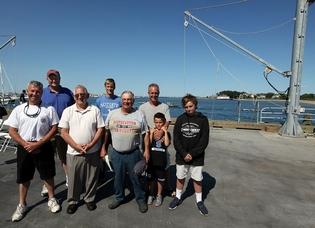 When Frank Mirarchi first came to the town pier in 1949, he was a 6-year-old fascinated by the hustle and bustle of “boisterous rivalry” among a crowd of lobstermen. Over the years, the town has invested in infrastructure to support the industry, including the recent reconstruction of the pier. Meanwhile, federal regulations have had an opposite effect, he said. “The 1987 pier has been given a major upgrade, prolonging its life and utility for yet another generation, but will there be another generation to serve?” he said. Career fishermen, like Mirarchi, joined town officials recently in re-dedicating the newly renovated town pier, which was first built in 1936 and last renovated in 1987. The event was mostly a celebration to honor the fishermen and their families, but the decline of the industry was a natural part of the conversation. Read the story here 13:32
When Frank Mirarchi first came to the town pier in 1949, he was a 6-year-old fascinated by the hustle and bustle of “boisterous rivalry” among a crowd of lobstermen. Over the years, the town has invested in infrastructure to support the industry, including the recent reconstruction of the pier. Meanwhile, federal regulations have had an opposite effect, he said. “The 1987 pier has been given a major upgrade, prolonging its life and utility for yet another generation, but will there be another generation to serve?” he said. Career fishermen, like Mirarchi, joined town officials recently in re-dedicating the newly renovated town pier, which was first built in 1936 and last renovated in 1987. The event was mostly a celebration to honor the fishermen and their families, but the decline of the industry was a natural part of the conversation. Read the story here 13:32
The Oregon Department of Fish and Wildlife has drafted a “forage fish” plan
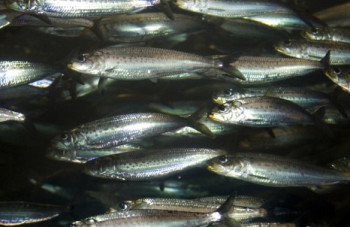 Oregon fishery managers are quietly embarking on a plan to ban new commercial fisheries on several species of small ocean fish considered diet staples for salmon and sea birds. The Oregon Department of Fish and Wildlife has drafted a plan to ensure that certain smelts, squids, sand lance and other so-called “forage fish” remain prey for larger fish like salmon and myriad sea birds in Oregon’s near-shore waters. The draft plan does not restrict any current commercial fisheries. But it does address “by-catch” that occurs during commercial seasons for species such as sardine and Pacific whiting in which non-target species are caught. Only Alaska has a similar ban on new commercial seasons on near-shore forage fish, according to the Pew Charitable Trust, which has trumpeted forage-fish protection for years. Read the story here Read Dick Grachek’s, THE FORAGE FISH FARCE Click here 12:50
Oregon fishery managers are quietly embarking on a plan to ban new commercial fisheries on several species of small ocean fish considered diet staples for salmon and sea birds. The Oregon Department of Fish and Wildlife has drafted a plan to ensure that certain smelts, squids, sand lance and other so-called “forage fish” remain prey for larger fish like salmon and myriad sea birds in Oregon’s near-shore waters. The draft plan does not restrict any current commercial fisheries. But it does address “by-catch” that occurs during commercial seasons for species such as sardine and Pacific whiting in which non-target species are caught. Only Alaska has a similar ban on new commercial seasons on near-shore forage fish, according to the Pew Charitable Trust, which has trumpeted forage-fish protection for years. Read the story here Read Dick Grachek’s, THE FORAGE FISH FARCE Click here 12:50
University of British Columbia study – Insurance industry unknowingly supports illegal fishing
 Many boats involved in illegal, unreported and unregulated (IUU) fishing are able to get insurance, suggesting that the insurance industry is inadvertently supporting illegal fishing, according to new Canadian research. But that means it may also be able to help curb that kind of activity, say researchers at the University of British Columbia. The most popular type of maritime insurance is called protection and indemnity insurance, and it’s required by law for many vessels larger than 1,000 gross tonnes. It protects vessel operators in case of third-party liability or pollution deemed to be caused by the vessel. The researchers went through lists of 480 confirmed or suspected illicit fishing boats, such as the European Commission’s Regional fisheries management organisation’s IUU list and Interpol’s Purple Notice lists. Among those, they found 67 vessels listed as insured clients of 17 different maritime insurers who posted lists of their clients online, the researchers reported in a recent article in the journal Frontiers in Ecology and the Environment. Read the rest here 11:50
Many boats involved in illegal, unreported and unregulated (IUU) fishing are able to get insurance, suggesting that the insurance industry is inadvertently supporting illegal fishing, according to new Canadian research. But that means it may also be able to help curb that kind of activity, say researchers at the University of British Columbia. The most popular type of maritime insurance is called protection and indemnity insurance, and it’s required by law for many vessels larger than 1,000 gross tonnes. It protects vessel operators in case of third-party liability or pollution deemed to be caused by the vessel. The researchers went through lists of 480 confirmed or suspected illicit fishing boats, such as the European Commission’s Regional fisheries management organisation’s IUU list and Interpol’s Purple Notice lists. Among those, they found 67 vessels listed as insured clients of 17 different maritime insurers who posted lists of their clients online, the researchers reported in a recent article in the journal Frontiers in Ecology and the Environment. Read the rest here 11:50
Report: Sharks in peril off coast because of gillnets, Advocates disagree
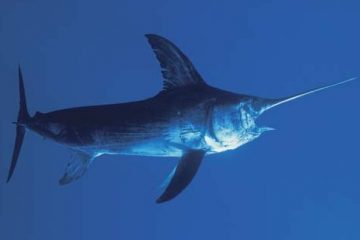 The report, “California Driftnet Fishery: The True Costs of a 20th Century Fishery in the 21st Century,” issued by Marin’s Turtle Island Restoration Network, says the California driftnet fishery is taking a toll on shark populations. But supporters of the gillnet fishery note it is already monitored by federal authorities and question data in the report. “There are good regulations in place and the populations are strong,” said Jonathan Gonzales, president of the Ventura County Commercial Fishermen Association, adding that data show thresher shark populations are improving. “There is no overfishing like there once was. It’s really a success story.” “We see this report as highly sensational and grossly inaccurate,” said Diane Pleschner-Steele, executive director of the California Wetfish Producers Association. The California Fisheries and Seafood Institute — in a letter addressing a bill to eliminate gillnets — states 90 percent of the fish caught by nets in the swordfish fishery either go to market or are released alive. Read the story here 09:51
The report, “California Driftnet Fishery: The True Costs of a 20th Century Fishery in the 21st Century,” issued by Marin’s Turtle Island Restoration Network, says the California driftnet fishery is taking a toll on shark populations. But supporters of the gillnet fishery note it is already monitored by federal authorities and question data in the report. “There are good regulations in place and the populations are strong,” said Jonathan Gonzales, president of the Ventura County Commercial Fishermen Association, adding that data show thresher shark populations are improving. “There is no overfishing like there once was. It’s really a success story.” “We see this report as highly sensational and grossly inaccurate,” said Diane Pleschner-Steele, executive director of the California Wetfish Producers Association. The California Fisheries and Seafood Institute — in a letter addressing a bill to eliminate gillnets — states 90 percent of the fish caught by nets in the swordfish fishery either go to market or are released alive. Read the story here 09:51
Tagging tuna – The Ahi Satellite Tagging Project of the Pacific Island Fisheries Group
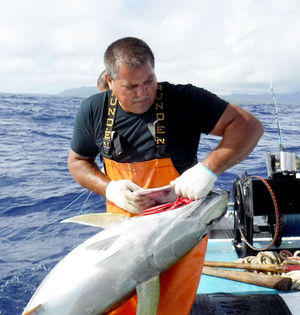 A respected research professor, scientist and part-time resident has been on Kauai for several weeks coordinating the latest phase of a tuna tagging project launched on Kauai and the Big Island three years ago. Dr. Molly Lutcavage is a research professor at the University of Massachusetts Boston’s School for the Environment. She is also director of the Large Pelagic Research Center and is renowned for her extensive work with the Atlantic bluefin tuna fishing community. The Ahi Satellite Tagging Project of the Pacific Island Fisheries Group is a joint venture that uses state-of-the art technology and partners fisheries organizations, policy makers and local fishermen in the effort to gather much-needed baseline data on ahi and other pelagic fish that live and migrate in waters surrounding the main Hawaiian islands and beyond. Read the rest here 09:15
A respected research professor, scientist and part-time resident has been on Kauai for several weeks coordinating the latest phase of a tuna tagging project launched on Kauai and the Big Island three years ago. Dr. Molly Lutcavage is a research professor at the University of Massachusetts Boston’s School for the Environment. She is also director of the Large Pelagic Research Center and is renowned for her extensive work with the Atlantic bluefin tuna fishing community. The Ahi Satellite Tagging Project of the Pacific Island Fisheries Group is a joint venture that uses state-of-the art technology and partners fisheries organizations, policy makers and local fishermen in the effort to gather much-needed baseline data on ahi and other pelagic fish that live and migrate in waters surrounding the main Hawaiian islands and beyond. Read the rest here 09:15
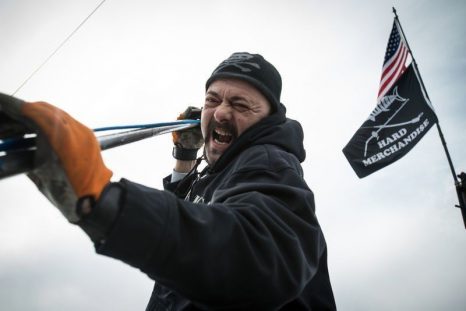
Some Wounded Warrior’s will celebrate Independence Day fishing with Dave Marciano on the Yankee Freedom
What better way to celebrate Independence Day than to honor some of the veterans who fought to sustain the nation’s freedoms with a full day of fishing? Gloucester fisherman and “Wicked Tuna” cast member Dave Marciano, and a host of generous associates such as Tom Orrell of the Yankee Fleet charter fishing service, are marshaling forces to sponsor a free Fourth of July fishing trip for an invited group of military veterans assembled through the Wounded Warrior Project. “Obviously with the success of the show, my life is pretty amazing now and I get to do a lot of incredible things,” Marciano said Friday afternoon. “But of all the things I get to do, this is one of the most important for me. The veterans are just so appreciative. Being around them and being able to do something for them makes me feel good inside.” Marciano first began working with the Wounded Warrior Project after the first season of “Wicked Tuna,” which recently completed its fifth season on the NatGeo network. Read the story here 07:56

































